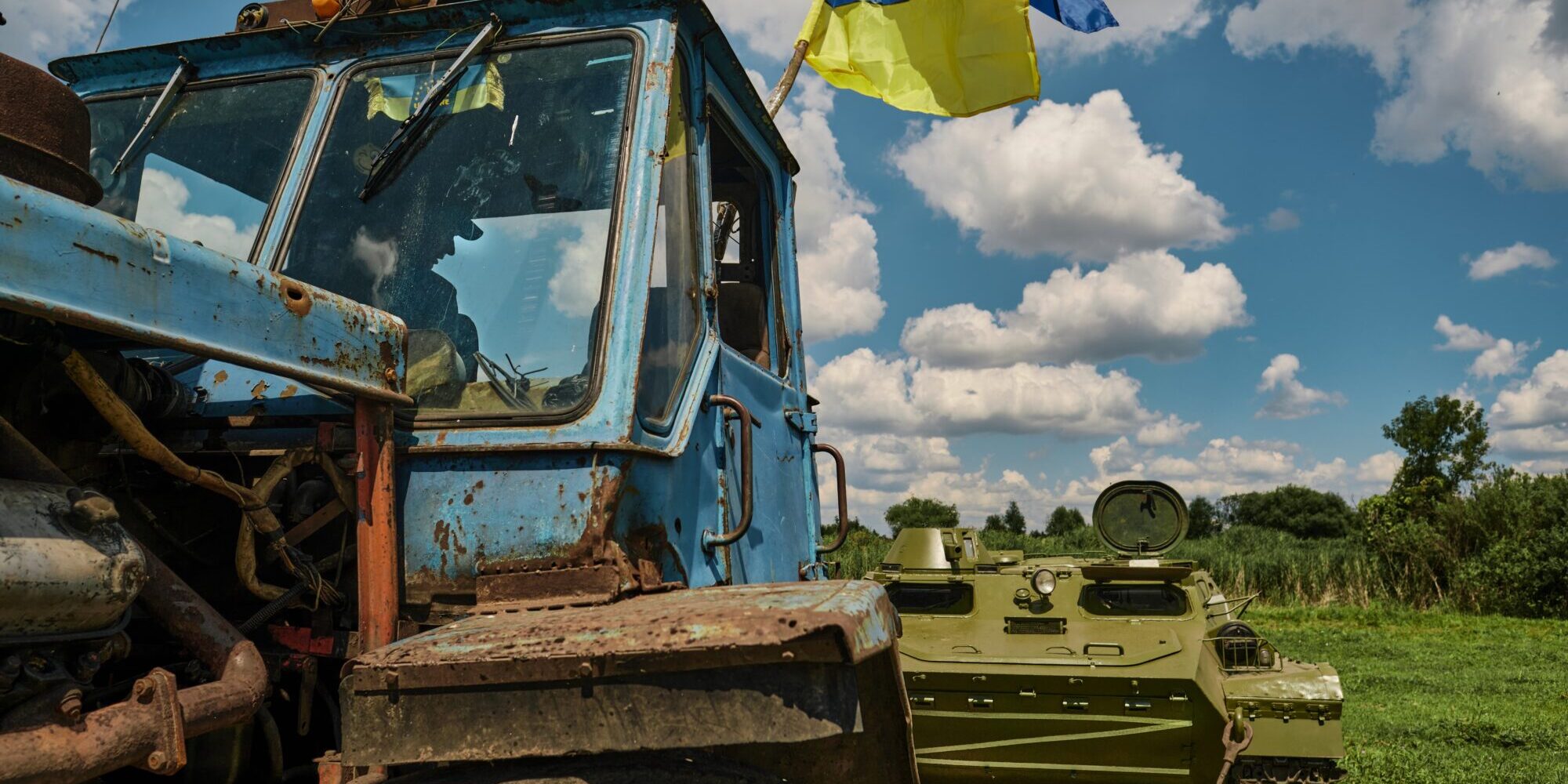
The small-scale farmers in Ukraine hold the key to the future of food supply
Author
Published: 23 March 2023
Last updated: 26 January 2024
Research areas
Share article:
One year has passed since Russia invaded Ukraine. It has been disastrous for Ukrainians. It has also threatened food security in large parts of the world.
Many countries depend on food exports from Russia and Ukraine – the so-called “breadbaskets of the world”.
The war in Ukraine has shown how fragile and unreliable the global export-dependent food system is. Smallholder farmers in Ukraine have shown that the local food system is resilient, sustainable, and capable of producing and distributing food even under the most difficult of conditions.
Panic and speculation
The globalized food system is characterized by large-scale industrial agriculture and international food trade. This has meant that most human diets have become extremely dependent on just a few basic foods. Three cereals (wheat, rice and maize) account for almost half of all the calories consumed by the world’s population.
Before the war, Ukraine and Russia exported 30 per cent of the wheat, 60 per cent of the sunflower oil and 20 per cent of the corn consumed globally. The withdrawal of these two countries from the world trade has led to a food crisis.
The crisis was exacerbated by panic and speculation on the world’s food markets. In addition, there were export restrictions that some countries introduced to maintain their own food security. Consequently, the whole world was faced with food shortages and a sharp increase in food, energy and fertilizer prices. Prices were at their highest even before the war.
Two fronts
The global food crisis has intensified the debate about who will feed the world. Proponents of the global food system argue that industrial agriculture and international food trade are able to produce cheap food and distribute it to everyone. In their opinion, food security should be achieved through free trade and the use of modern technologies and chemicals in food production.
Opponents emphasize the social, economic and environmental costs of industrial agriculture. They advocate for local food systems that are less dependent on global trade and that can provide the world with healthy, varied and environmentally friendly food. The war in Ukraine has shown that local food systems are more resilient, and that small farmers can produce food when large-scale industrial agriculture fails.
In my article “Food sovereignty and solidarity initiatives in rural Ukraine during the war”, I analyzed how different agricultural producers have been surviving during the war. The Ukrainian agricultural system is characterized by coexistence between large enterprises that specialize in growing grain and oil crops for export, and small-scale private farmers who produce potatoes, vegetables, fruit, and dairy and meat products for their own consumption and sale on the local market.
Heroes of the war
The Russian army’s attack on Ukrainian agriculture and the blockade of the Black Sea ports have significantly reduced Ukrainian food exports. It has led to serious financial difficulties, even bankruptcies, in large agricultural enterprises.
Small farmers, on the other hand, are not dependent on international trade. They work manually and use natural fertilizers and traditional seeds. The food is distributed through local networks, and people help each other. Ukrainians refer to the private farmers as heroes of the war who risk their lives daily to produce food for the country during the war.
Many academics and activists argue that it is time to change our global food system to a more robust and sustainable one.
However, by taking emergency decisions to ensure food security in the face of a global food crisis, politicians are making the system even more dependent on global industrial agriculture.
The EU countries have, for example, granted temporary permission to cultivate in protected areas of great importance for flora and fauna. The same applies to the use of previously banned chemicals to increase food production.
In Norway, politicians have set goals to increase self-sufficiency by increasing the area under cultivation and encouraging farmers to produce grain for human food instead of for animal feed.
But if we let ourselves be inspired by the success of the Ukrainian small farmers – that is, support local food systems – we do not have to sacrifice sustainability for food security.
This article was published in Aftenposten on 6 March 2023.
Author
Published: 23 March 2023
Last updated: 26 January 2024
